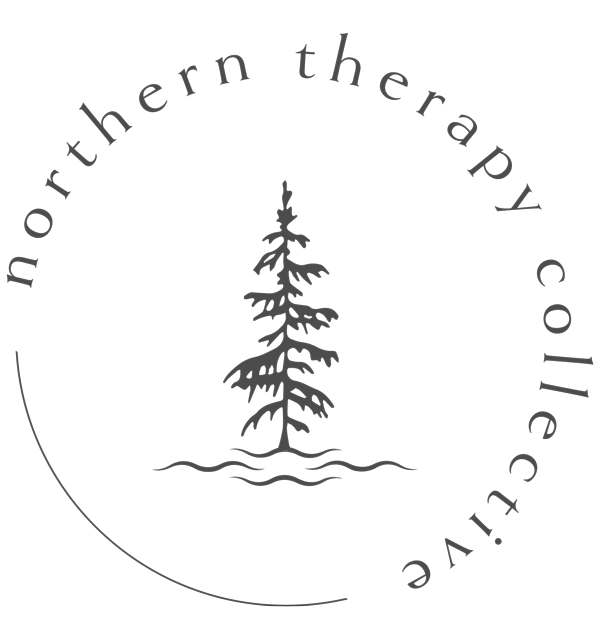Frequently Asked Questions
Is therapy covered by insurance? What can I expect from my NTC therapist? We do our best to cover your frequently asked questions.
Virtual Therapy faq
OWL Practice Canada; a platform specifically designed for mental health professionals offering private practice in Canada.
No need to download any new apps or software onto your device. You will need access to email and a reliable internet connection in order to join virtual sessions. Before your appointment, you will receive an email from your therapist with a link to join the session. If you have any questions or challenges entering the meeting, please reach out to your therapist to troubleshoot!
As long as your device has video capabilities and access to reliable internet, you can use it – whether that’s a phone, tablet, desktop computer or laptop. We recommend a bigger screen (laptop, tablet, or desktop computer) for ease of viewing documents that your therapist may show via screen-sharing – if this is relevant to your treatment plan.
At NTC, we are committed to using the most secure technology to protect your privacy and meet or exceed the privacy standards put forth by regulatory colleges and provincial legislation. The simple answer: FaceTime is not as secure as the system we are using for sessions.
Absolutely! At NTC we find great value in offering video sessions, not only for the face-to-face connection but also for the screen-sharing capabilities that can be used to aid your treatment with supplemental materials. That being said, we know that video sessions are not always possible (perhaps due to device limitations, poor internet connection, etc.) and in those cases we are happy to provide service via phone, provided the format is aligned with your treatment plan and goals for therapy.
While virtual therapy really can benefit most people, there are a few circumstances where we would not recommend engaging in virtual care.
- If you do not have access to adequate technology and/or reliable internet, virtual sessions may not be feasible. Feel free to contact us to discuss further if you are unsure whether your technology will suffice.
- If there are safety or risk considerations within the home (e.g. lack of privacy, ongoing domestic concerns) then in-person appointments may be more appropriate.
- If you are seeking help for a mental health condition that requires regular, in-person monitoring (e.g. moderate-to-severe eating disorders, active self-harm) then virtual appointments may not be advisable.
- If you are actively in crisis, attending a virtual appointment is not recommended. Please contact crisis services, attend your local emergency department, or call 911.
Find your local CMHA branch here if you’re searching for a community resource nearest to you: https://cmha.ca/find-help/find-cmha-in-your-area/
Please contact crisis services if you are actively in crisis and in need of immediate support: 1-833-456-4566


Sessions & Services faq
A consultation call is your opportunity to speak with a therapist (at no cost!) and determine if they feel right for you. We know, from the research, that a good sense of “fit” between client and clinician is the greatest determining factor for therapeutic success; even more-so than type of therapy used or time spent in treatment! Consultation calls are not mandatory but in today’s virtual world, where the options are vast and relatively accessible, why not take the time to ensure the person you’re working with is a good fit for you and your needs? To read more about free consultation calls click here.
Prior to the first appointment, you will receive an email from your therapist with the information that is required for your session, including an electronic intake form and NTC consents. We kindly ask that you review this information ahead of the appointment, and make note of any questions or concerns that you would like to discuss with your therapist. It will also be valuable to reflect on why you are seeking therapy now, and what you hope to achieve while in treatment. You will not need to download any special technology to attend the appointment.
The first appointment starts with a review of consent forms and relevant NTC policies (going over cancellation procedures, privacy, and so forth). Once this is complete, the therapist will ask you a variety of open-ended questions to better understand who you are and what brought you to therapy. The final goal of the session is to establish a shared treatment plan that will act as a guide for future appointments (though this may be something that is developed over several appointments).
The first session can bring forth many different emotions; all of which are valid and normal! You may feel anxious, excited, hopeful or unsure but your therapist will be there to support and guide you through each step!
A treatment plan is an important therapy document that aims to incorporate a client’s goals for therapy and reasons for seeking service with some suggested techniques or interventions, delivered over a proposed period of time. Essentially, it serves as a “road-map” for treatment and provides a touchstone for future appointments.
Treatment plans can be very prescriptive and specific (for example: an 8-session protocol of exposure therapy targeting a specific phobia) or relatively broad and open-ended (for example: unstructured talk therapy focusing on personal growth and working towards new relationships) however, even in open-ended treatment plans the therapist will periodically check-in to ensure that the goals and procedures being used are still accurate, relevant and effective for the client.
Treatment plans are meant to be designed in collaboration (with equal input from client and therapist) and can be altered or changed at any time.
The clinicians at NTC use a tailored and flexible approach to treatment and are committed to working closely with clients to create highly individualized treatment plans. In other words, sessions can look quite different depending on what you are looking for from therapy and your preferred style of interaction. Our therapists are able to provide relatively structured and prescriptive protocols for a wide variety of mental health conditions, or they can utilize a more flexible and conversational approach if you prefer. This is something that will be discussed and decided upon within the first couple meetings with your therapist.
With regards to therapy type and orientation, NTC clinicians are well-trained and highly versed in the evidence-based approaches, particularly cognitive-behavioral therapy (CBT). In fact, both of our founders spent the early part of their careers in the Ontario Structured Psychotherapy (OSP) program delivering high-fidelity, structured CBT to the general public.
A standard therapy session is 50 minutes long. For treatment plans that include exposures or other lengthy procedures, longer session times (90-120 mins) may be required to adequately complete the intervention. This is something that would be discussed and negotiated with your therapist prior to the appointment taking place.
This is ultimately up to you! Weekly sessions are not required and, depending on your goals and reasons for seeking service, a biweekly or monthly schedule may be preferred. Session frequency and treatment duration are things that can be negotiated based on client preference and clinician availability. It is also good to consider things like insurance coverage and financial resourcing when planning for time in therapy. One of the greatest benefits of private practice is the ability to tailor the treatment plan to your individual needs!
Life happens; someone gets sick, the hydro goes out, or work hours change, we get it! Contact your therapist as soon as possible to notify us of your need to cancel. If the cancellation occurs with less than 24 hours notice, late cancellation fees may apply.
Emergency or “crisis” sessions are better suited to teams and agencies that are well equipped to support people with these types of immediate needs. As such, we may redirect clients to these services, or encourage them to attend their local emergency department/call 911 if we feel it is necessary. Alternatively, some local community agencies may offer same-day walk-in counselling appointments.
If you are looking for a same day session, and you are NOT in crisis, feel free to reach out to your therapist to inquire about their availability. Given that most sessions are booked in advance, it is unlikely that you will receive a same day appointment but it never hurts to ask (perhaps they have an open time or cancellation that day)! Simply reach out to your therapist or the NTC general account and you will be scheduled for the next available appointment time.
Privacy and Your Personal Health Information faq
We collect personal information to contact you, provide invoices and receipts, assess your needs, develop a treatment plan, provide and evaluate services, respond in case of an emergency, or provide your records/consultation to other parties (with your consent).
We are required to keep a record of all our clients. Your records will include: contact information, emergency information, consent and intake forms, contracts, assessments, previous records, treatment plans, session notes and summaries, billing information, and all correspondence we send or receive from you. Additional information (not listed here) may also be contained within your record if it relates to your treatment or time spent in service with NTC.
We keep physical files under direct supervision when in use, or in locked filing cabinets in a locked room when not in use. We keep our electronic files on a secure web-based practice management system that is encrypted, complies with guidelines for personal health information, and is routinely backed up to ensure the security of sensitive client information.
Clients have a right to access and obtain copies of their personal files. If you are a current or recent client of NTC, and you wish to access your records, please let us know and we will schedule a time to go through the file with you. If you believe that there is a mistake in factual information, you may ask that it be corrected. We will not change information related to our professional opinions. We may ask you to provide documentation correcting any erroneous information. If we do not agree with your request to change something within the file, you may write a note explaining your proposed changes and we will include that in your file.
All of the clinicians at NTC are bound by mandatory privacy legislation in Ontario. As such, we will not share any personal health information outside of NTC without your knowledge and consent, except in the following circumstances as required by law:
- When there is a clear and imminent risk of serious harm to self or others
- When we suspect that a child under the age of 18 years is at risk of abuse or neglect.
- When a client informs us of inappropriate behavior or abuse by a regulated health professional (e.g. doctor, nurse, therapist)
- When we suspect that a person in a long-term care facility is being abused.
- When a court of law subpoenas the record.
- When the licensing or governing body inspects records as a part of their regulatory activities in the public interest.
We communicate with our clients and other service providers through a wide range of electronic communication, including phone, fax, email, and post mail. We recognize that there can be risks to privacy with regards to any out-of-session contact that we may have with you or other service providers. Clinicians at NTC will do their best to take care with your privacy when using these forms of communication, but are not able to guarantee privacy of electronic/internet-based communications. If you have a preference for certain forms of communication over others due to privacy concerns, please indicate this to the clinicians and admin staff involved in your care. NTC will keep a record of all clinical or substantive contact (e.g. emails, texts, phone calls, faxes) in your health record.
If you have concerns about how any health agency is using, storing, sharing or otherwise accessing your personal health information, consider contacting the Information and Privacy Commissioner of Ontario. Information for the Information and Privacy Commissioner of Ontario can be found here: https://www.ipc.on.ca/
You may also contact the Regulatory Colleges (either the College of Registered Psychotherapists of Ontario, or the Ontario College of Social Workers and Social Services Workers) to learn more about your rights as they relate to privacy/PHI, and if necessary, how to make a complaint or report a concern related to a regulated health professional or service.


Other faq
Both Registered Psychotherapists (RP) and Registered Social Workers (RSW) are permitted to perform the act of psychotherapy in the province of Ontario, under their respective regulatory colleges. Registered psychotherapists are regulated by the College of Registered Psychotherapists of Ontario (CRPO). Registered Social Workers (RSW) are regulated by the Ontario College of Social Workers and Social Services Workers (OCSWSSW).
A psychiatrist is a medical doctor (M.D.) with specialized practice in the field of mental health. Psychiatrists will commonly offer brief (1-2h) psychiatric consultations for the purposes of assessment, diagnosis, and medication review but can also provide longer-term treatment to their patients. Given their place in the medical system, psychiatry services are usually covered by OHIP (with a referral from primary care).
Psychologists are also doctors in the field of mental health, but they have gained their doctorate through scientific research as opposed to the practice of medicine (designations are usually PhD or PsyD). Psychologists often provide treatment to patients directly and are qualified to diagnose mental health conditions but they do not prescribe medication and their services are rarely covered by OHIP.
Similarly, psychotherapists are mental health professions who typically provide “front-line” treatment to the general public (often via counselling, talk therapy, and/or psychotherapy). Psychotherapists (and social workers) often have Bachelors and/or Masters level education and are not authorized to formally diagnose or prescribe medication, nor are our services covered by OHIP.
Social workers and psychotherapists are not authorized to prescribe medication but it’s always a good idea to keep your therapist informed of any changes on this front as it could be relevant to the work you are doing in therapy.
If you are interested in a medication review or require a new prescription, please reach out to your primary care provider to arrange an appointment. One-time psychiatric consultations (through local agencies or hospitals) may also be an option for clients who do not have access to primary care support.
It is possible that part (or all) of the cost of therapy may be covered by your insurance provider, but we cannot guarantee coverage of psychotherapy services. We encourage clients to reach out to their providers and determine the following, prior to starting therapy:
- Does your insurance package include mental health benefits?
- Are there limits to coverage and if so, what are the parameters? (e.g. amount per year, number of sessions)
- What is the process for you to be reimbursed by your provider? (NTC will provide receipts)
- Does your provider require a specific type of clinician to cover the cost of service? (e.g. social worker, registered psychotherapist, psychologist)
- Will the insurance provider require any sort of documentation or ongoing reports, outside of billing/receipts? (please note: social workers and RP’s have limits to what we can provide to disability/insurance companies while staying within the scope of our practice)

